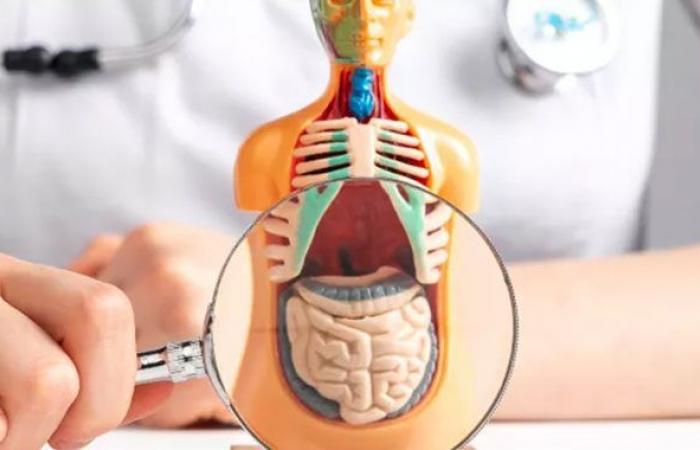For the second consecutive year, the Biocodex Microbiota Institute has entrusted Ipsos with the realization of a major international survey on the microbiota: the International Microbiota Observatory. The interest is clear in the sense that the benefits of microbiotas on the human body have been confirmed, particularly on digestion and immunity. The survey covered 7,500 people in 11 different countries including Morocco. The details.
The survey results mainly provided answers to the following questions: “Do people know more about microbiotas this year? Has their knowledge of their role and functions improved? What role do healthcare professionals play today in transmitting information about the microbiota to their patients?”
From the outset, the authors of the survey state that “awareness of the importance of the microbiota for health is real but that there is still a long way to go.” Based on this observation, health professionals have a decisive role to play in educating and informing citizens throughout the world.
In Morocco, awareness-raising among health professionals must be intensified to deepen their knowledge and improve their practices.
As a reminder, the microbiota is made up of trillions of microorganisms (bacteria, viruses, fungi, etc.) and lives in our intestines, on our skin, in our mouth, nose and lungs. “These organisms play a crucial role in our well-being by facilitating digestion, stimulating our immune system, and protecting us against infectious diseases. But beyond these functions, the microbiota also influences our mood, our metabolism and even our longevity. An alteration of this delicate balance, often due to factors such as diet, lifestyle or medications, can lead to significant health problems ranging from gastrointestinal diseases to cardiovascular disorders and depression,” the scientists insist.
The stakes are clear. It is about maintaining a healthy microbiota in all areas of the body to preserve the overall health and well-being of everyone. It is in this precise context that the survey was conducted with a sample of 7,500 people, in 11 countries (France, Spain, Portugal, Poland, Finland, Morocco, United States, Brazil, Mexico, China and Vietnam). In each country, the sample questioned is representative of the country’s population aged 18 and over in terms of gender, age, profession and region. The survey was conducted online, from January 26 to February 26, 2024. “This year again, only 1 in 5 people say they know exactly what the term microbiota means” (23%) but awareness of this term tends to increase (+3 points vs 2023). In total, 7 out of 10 people have already heard of the microbiota (+7 points vs 2023)”. This is what emerges from the analysis of the survey. In terms of knowledge about the diversity of microbiotas, it remains limited but is also progressing compared to last year. According to the survey, “the intestinal microbiota remains the best-known microbiota: 26% know exactly what it is (+2 points vs 2023). Next come the vaginal microbiota (20%, +3 points vs 2023), the oral microbiota (20%, +2 points vs 2023), the skin microbiota (17%; +1 point vs 2023) and the urinary microbiota (16%, +2 points vs 2023)”.
This large-scale work also demonstrated that the role and functions of the microbiota are now better known compared to last year. The results reveal that “78% know that their diet has consequences on the balance of their microbiota (+2 points vs 2023), 77% know that an imbalance in their microbiota can have significant consequences on their health in some cases (+2 points vs 2023)”. However, the characteristics and composition of the microbiota are still very little known by the populations surveyed. “Less than 1 in 2 people know that the microbiota is not located exclusively in the intestine (46%, +1 point vs 2023), and 28% know that the microbiota is not only made up of bacteria. Only half of the respondents know that the microbiota allows the intestine to deliver essential information to the brain for their health (53%, identical to 2023)”.
The survey also looked at individuals’ behavior in relation to the microbiota. According to Ipsos analysts, “more than half of the population surveyed (58%) say they have already changed their behavior in order to best protect the balance and proper functioning of their microbiota.” Awareness remains relative in the sense that “only 17% do it “a lot,” with 2 out of 5 people saying they only do it “a little” (41%).” On the other hand, certain behaviors more specifically linked to the protection of the microbiota are still insufficiently adopted, probably due to a lack of knowledge. “59% say they wash several times a day, a practice likely to cause dysbiosis (an imbalance in the composition of the microbiota that can cause many health problems) and 42% of women take vaginal douches, even though it is harmful to their vaginal microbiota,” reveal the authors of the survey. Regarding age, the survey shows that parents and 25-44 year-olds are the most knowledgeable about the microbiota, unlike seniors, even though the latter are even more exposed to health problems.
In Morocco, knowledge of the microbiota is very low despite the transmission of information by health professionals. The figures are stubborn: “less than 3 out of 5 people (59%) have ever heard of the microbiota (vs. 70% overall), and less than 1 in 5 knows exactly what the microbiota is (19%, vs. 23% overall)”. The intestinal microbiota is less known than in other countries: “21% of Moroccans know exactly what it is, compared to 26% for the average of the countries surveyed”. Knowledge of other microbiotas is similar to the average. Moroccans also stood out for their low knowledge of the role and functions of microbiotas compared to the overall results. “Only 1 in 3 Moroccans knows that the microbiota is not located exclusively in the intestines (vs. 46% overall), and only 45% are aware that the microbiota allows the intestine to transmit essential information to the brain for their health (vs. 53% overall),” the survey reveals.
However, the majority of Moroccans tend to change their behaviors to maintain the balance of their microbiota, a proportion similar to all the countries surveyed (61%, vs 58% overall), but 22% even do it a lot, a figure higher than the average (17% overall). Ultimately, Moroccans do not know the microbiotas, their roles, their functions. They tend, however, to adopt the right behaviors to preserve them. The stakes are clear. And awareness at this level will accelerate the process for better health.
Hook: “Only 1 in 3 Moroccans knows that the microbiota is not located exclusively in the intestines and only 45% are aware that the microbiota allows the intestine to transmit essential information to the brain for their health.
Boxed:






